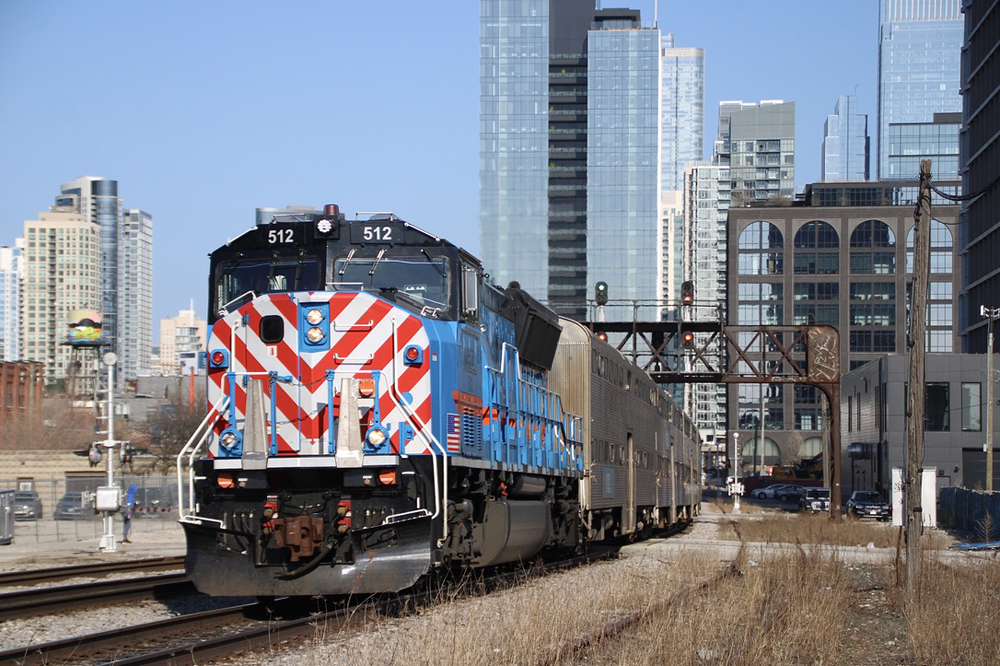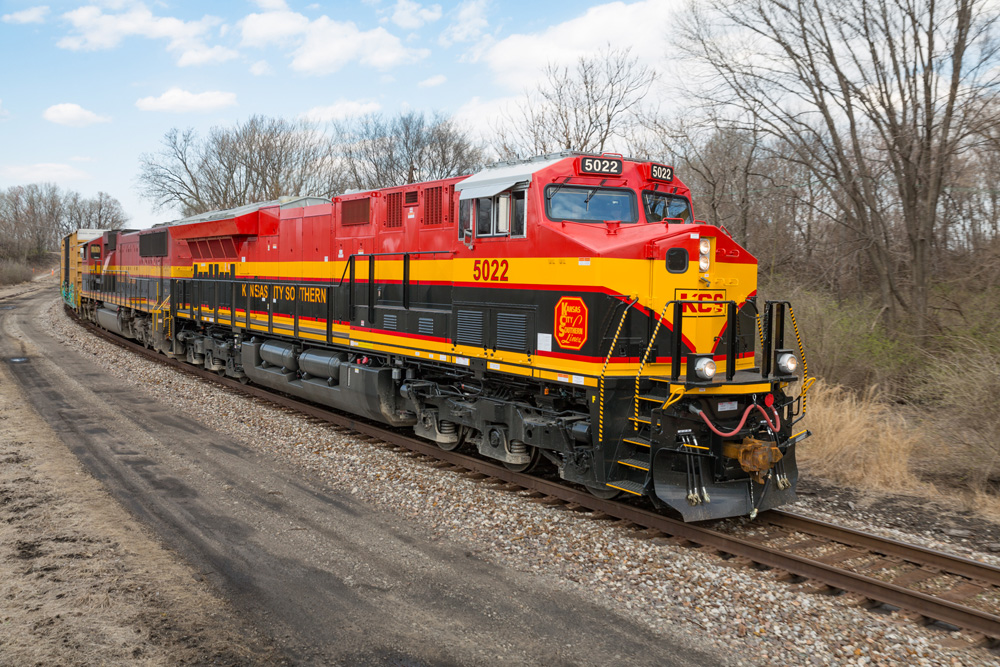
SPRINGFIELD, Ill. — Illinois lawmakers have introduced a bill to restructure Chicago area transit agencies — but the bill does not address the $770 million shortfall that could lead to significant cuts in service.
Streetsblog Chicago reports that on Wednesday, an existing bill regarding rules for bicyclists at stop signs, has, through amendment, been replaced with an 804-page omnibus transit bill — a move allowing the bill to be addressed with fewer steps before the legislative session ends Saturday. It includes some elements of two competing restructuring bills, one introduced last year in the state House [see “Illinois bill proposes merger …,” Trains News Wire, April 30, 2024], and one in the Senate that would give the RTA more power while not requiring a merger.
The new legislation would restructure the Regional Transportation Authority, which oversees Metra, the Chicago Transit Authority, and Pace bus service, into the Northern Illinois Transit Agency. That agency, with a restructured board of directors, would set budgets and fares for all three transit operations, which those agencies currently address separately.
Among a long list of provisions is one that lessens lowers a current requirement that 50% of operating revenue come from farebox recovery — significantly higher than most agencies — to 25%, which could ease pressure to raise fares or only operate the highest-volume routes.
The proposed composition of the restructured board — which would have five members chosen by Chicago’s mayor, five by the Illinois governor, five by the Cook County board president, and one from each of the five “collar counties” that are part of the RTA — is already drawing opposition.
WTTW-TV reports that state Sen. Don DeWitte (R-West Dundee) said in a statement that the plan “appears to confirm our initial fears that that is a Chicago-Cook County takeover of regional transit funding and operations because the voting thresholds appear to be heavily skewed toward Cook County and the City of Chicago.” He said the collar counties would “fight for fairness and equality in board representation and voting power.”
Metra said in a statement to WBBM-TV that it was still reviewing the House and Senate versions of the legislation, while an RTA statement said that while that agency was still reviewing the bill, it was clear it did not address the funding issues. “Reforms alone cannot close our fiscal cliff,” that statement said, “and riders will need to brace for service cuts in 2026 if the state does not provide funding certainty by May 31.” That is the deadline for a state budget for fiscal 2026.
The RTA in March outlined how such cuts might look over all three agencies, including suspension of service on four of the CTA’s eight rail lines; an end to late night and early morning Metra trains and reduced service at other times that could, for example, cut the number of trains on the heavily used BNSF line by more than half on weekdays; and significant Pace bus reductions [see “Chicago transit agencies paint dire picture …,” News Wire, March 21, 2025].
— Updated at 1 p.m. CT to correct error in quote from Sen. DeWitte.














The photo shows a rusty, weed grown track to the right. If memory is correct, that is the old Pennsy line that ran north thru CUS and turned West paralleling the Milwaukee. The signal bridge had a position light and there were others along the ROW. It always struck me as incongruous to see the Pennsy lights and flimsy rail alongside the Milwaukee’s high iron…the Pennsy track thru CUS remains in use as it is the only one available for the EB and Boring Alice.
Curtis, you bring up my favorite (in the past) trivia question. (No longer holds true, as the only shipper, a fluor mill, has been demolished.) The trivia question was this:
Out the window of which Amtrak train might you be very surprised to see a Norfolk Southern switching movement. Answer – Hiawatha or Empire Builder.
If the State of Illinois takes money from the revenue buckets of downstate tax payers to prop up RTA, look for a voter rebellion.
I am not a tax and spend guy, but if the suburbs want to continue the service without the work commute involved, then they should prop up the revenue. They already pay an RTA sales tax to hold up Pace (bus) and Metra (rail).Either pay up or cut out service levels.
Naperville, the third largest city in Illinois flipped Democrat, and that city is a heavy Metra (BNSF) user.
“Chicago-Cook County takeover of regional transit funding and operations because the voting thresholds appear to be heavily screwed toward Cook County and the City of Chicago.”
Many in Downstate Illinois are used to getting the shaft from Cook County.
Used to be just Cook County. Look up the election returns for Lake County. Solidly Democrat. Proof that the Dem Party is a coalition that includes (among others) the rich and the privileged.
Got to give these people some credit — RTA has lasted fifty-one years before falling into financial ruin. That’s no small accomplishment. Now that RTA is facing BK, why not reorganize the Board of Directors and give the organization a new name — that is to say, rearrange the deck chairs on the Titanic. (Oh, how original – the reason that platitude- rearranging the deck chairs on the Titanic – has gained so much traction is that it graphically describes the futility of trying to stave off impending catastrophe.)
The challenges to public transportation in USA are many and deep. One of them is that transit agencies, many of them, are Ponzi schemes, localized versions of Social Security but worse. Stagnant or falling revenue has to be balanced against soaring costs. Prominent among those soaring costs is pensions. A stagnant work force has to support ever increasing numbers of pensioners.
People reading this post will say, Mr. Charlie Chuck, just exactly what is your answer? To which I will respond, I don’t have a solution.
This proposed Agency is a means for Chicago to steal Metra’s money. But it doesn’t matter because there is no money.